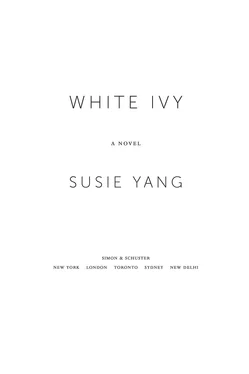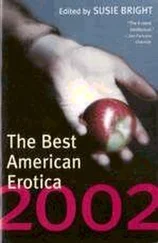What her friends didn’t see were the sleepless nights when Meifeng tossed and turned in fear over the fate of her second daughter. Nan had not been accepted to college—she had fainted from anemia and exhaustion during the entrance exams—and had found a job working at a sewing factory. She still lived with Meifeng and cared for her sisters, but anyone could see she was unhappy. She had no friends or suitors, had rejected multiple offers of marriage, and spent her weekends patching old clothes by candlelight. Her beauty had waned over the years: dark circles puffed out her face; she was so thin that her wrist bones poked out like sharp stones. Meifeng cursed the fortune-teller—that old hag, that fraud, preying on the hopes of the poor—and she vowed to hike back up Mount Jinfo to give that shrew a piece of her mind. She planned the trip with the same tenacity she planned everything: she dusted her shoes, packed her lunch, got out her walking stick. But the very next day—a winter’s morning, icy downpour, howling winds—a young man showed up at Meifeng’s door.
“I’ve come to ask your permission to marry your daughter.” He spoke as if they were old acquaintances.
Meifeng looked at him in confusion. “Ping?” she asked, thinking he meant her flighty third daughter who was always flirting and giggling around men twice her age.
“No—Nan.”
Shen Lin, in all this time, had never forgotten about the girl with the basket and the two braids hanging down her back. When Nan had come to Neijiang to stay with her aunt, he had occasionally seen her walking down the street, head heavy with a sadness that belied a depth of character to her effervescent beauty. He followed her in the shadows, watching, longing, all the while listening to the gossip surrounding her heartbreak with a boy from her village. Shen didn’t care that Nan’s heart had once belonged to another. He only concerned himself with the present reality—namely, that Nan was the most desirable woman he knew and he would do anything to make her marry him.
The Lins were smart and determined in a no-nonsense way, without an ounce of the charm the Wus naturally possessed. Though they exhibited a calm, rational demeanor, a gambling streak ran through their blood. They were prone to sudden fits of irrational acts interspersed with long periods of meticulous routine. Shen had never before taken a risk or said anything superfluous, but now, he gambled his future on obtaining the woman he wanted.
To the chagrin of his parents, who had thought he would attend a large university to study medicine—one of the last prestigious but safe professions in China—Shen instead went to a local college and double-majored in English and Physics. In his last year, he took the TOEFL exam, passed with nearly perfect scores, and applied for graduate school in the United States. He didn’t know a single person in America, nor anyone who had applied to school abroad, but he knew he had to be exceptional to win Nan’s closed-off heart.
After receiving his acceptance letter from Suffolk University in Massachusetts, he armed himself with his new student visa and showed up that fateful winter morning at Meifeng’s doorstep, asking for her second daughter’s hand.
Meifeng gave herself over to a relief so strong it made her hand tremble on the wooden door frame. She knew she was a terrible mother for feeling such joy at the hope that someone was going to take Nan off her hands. Her poor, unbending Nan.
“I’m never going to marry anyone,” came a quiet voice behind them.
Both she and Shen turned around to see Nan in her pajamas, hair wet from the shower, ghostlike in her paleness. Her daughter’s eyes burned with such grief that Meifeng felt a vise grip around her heart she knew would follow her into the next life.
“Go away,” Meifeng snapped at Shen, furious at herself for nurturing such a foolish hope. She slammed the door in his face.
He came back to the house later that week when Nan was at the factory.
“I’m going to America,” he stated matter-of-factly, without arrogance. “I want to take Nan with me. In exchange, I’ll sponsor your other daughters once they finish college and want to come to the US as well.”
Meifeng’s heart beat in her rib cage like a trapped bird. America! The land of freedom! The land of abundant food and unlimited water and working electricity and great houses with twenty rooms. She never thought her daughters would have the opportunity to see such a place. Anywhere outside of Sichuan was as theoretical to her as heaven.
“Why are you doing this?” she demanded. “You think Nan’s an easy target for you? She’s the only eligible woman left so she’ll accept any scum? Just so you know, I won’t have some penniless scoundrel take my daughter away from me.”
“I love her,” replied Shen, unfazed. “I’ve always known she would be my wife.”
Meifeng scrutinized him for the usual male ploys of dramatizing lustful yearnings under the guise of love and responsibility. What she saw instead was an honest and competent man, coarse around the edges but sincere in his words.
“Nan will never agree to marry you,” she said to test his resilience. “No one is good enough for her. She won’t ever love an ugly, poor man like you.”
“You’ll have to convince her then.”
“ I can’t convince her of anything.” Meifeng prepared to slam the door in his face again, even as her arms shook with longing to usher him in.
Shen held her gaze with firm insistence. “I think you can,” he said.
Tears sprang to Meifeng’s eyes. “She hates me,” she muttered, unsure why she was spilling her innermost shame to this stranger standing at her door, with his high, knobby forehead and bulbous nose. But what could a mother do? There was no future for Nan in the village. Her older sister had married and gone away to Chongqing with her gambling drunkard of a husband. Nan’s younger sisters were in high school, still with the potential to realize their dreams of college; Meifeng spent all of her time squirreling away money for their tuition and pulling favors for their future job placements. Only Nan was stuck in the in-between, unable to move forward and unable to turn back.
Meifeng closed her eyes. “Be good to her. She deserves some happiness.”
“I will,” said Shen. “Thank you.” He had won the gamble. His hands were steady as he pulled out a pack of cigarettes and lit one on Meifeng’s stoop, offering it to her. She took the cigarette from his fingers and took a long drag. Like this, they sealed the deal.
“AND SHORTLY AFTER that,” Meifeng concluded, “your parents got married.”
Ivy balked. “I thought Mama said she wasn’t ever going to get married. What changed her mind?”
Meifeng waved her hand. “She came to her senses and realized your father was a good man. She got pregnant with you in China. They saved some money, then sent for you to join them and Austin in Massachusetts. Now your aunt Ping is living in Pennsylvania with her family because of your parents’ help. And I got to see America before I died. It’s what I’ve always told you. One successful marriage can feed three generations.” Even a tragic love story, filtered through Meifeng’s eyes, boiled down to food and money.
Long after her grandmother’s snores filled the room, Ivy lay awake in bed haunted by the image of Anming Wu. Beautiful, aristocratic Anming Wu. Beaten to death for stealing a sweet potato. Was there a more sordid way to die?
For the first time, Ivy’s soul quivered in fear of the future. Wasn’t her mother proof that your first love wasn’t frivolous and fleeting, and that the loss of it could destroy you, leaving behind a bitter husk of a woman who resented her husband and children because they were not the family she was supposed to have? Maybe she was destined to share Nan’s fate. But didn’t the fact that she had sex with Roux and had felt no guilt afterward demonstrate she was tougher than her mother, who would have killed herself, probably, from shame, and that she was in fact an immoral girl capable of great transgression through sheer impulse? Meifeng said Nan was unbending, like a brittle tree toppled over by the first strong gust, but Ivy was a windmill; she might love and lose but she would never settle for a Shen Lin with the knobby forehead and bulbous nose. Not for her an inane existence governed by Meifeng’s tenets. Love would exist for its own sake, and not the sake of getting your sister and mother a United States green card.
Читать дальше












